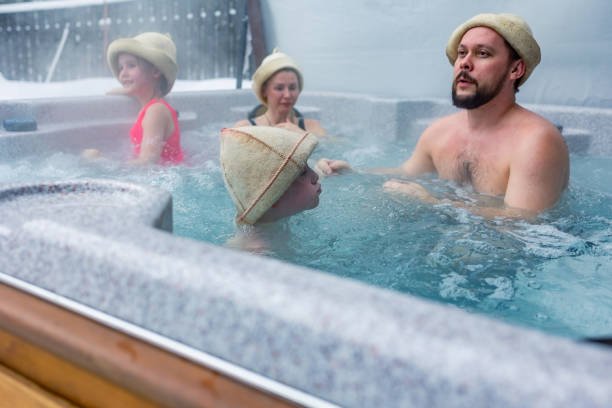Cold Water Therapy: Mechanisms, Types, and Benefits
Increasing research indicates that cold water therapy offers several health benefits, including enhanced mood, reduced stress, and improved metabolic and cardiovascular health.

What is Cold Water Therapy?
Cold water therapy, or cold hydrotherapy, involves using water at approximately 59 degrees Fahrenheit to treat various health conditions or promote health benefits. “Cold water therapy can lead to decreased stress levels after a one-hour session and induce significant physiological and biochemical changes in the body, such as improved blood pressure, metabolism, and peripheral blood flow,” says Wan Na Chun, a registered dietitian, and personal trainer based in Indianapolis.
These physiological changes may indirectly impact metabolism and heart health by reducing body fat and improving insulin resistance, which are critical factors associated with chronic conditions such as diabetes and cardiovascular disease.
Types of Cold Water Therapy
Cold water therapy has historical roots dating back to ancient Greece and includes methods ranging from brief sprays or rinses to full-body ice baths. As a subset of cryotherapy, encompasses a variety of techniques aimed at leveraging the health benefits of cold exposure. According to Chun, “Cold water immersion and cryotherapy chambers are generally considered the most effective forms of cold therapy due to their significant benefits.”
Here are the common types of cold water therapy:
- Cold Water Immersion: Techniques like the Wim Hof Method involve submerging the body in water at or below 59 degrees Fahrenheit for up to 15 minutes. This method often includes breathwork and immersion in natural settings.
- Cold Showers: A study found that a 15-minute cold shower post-exercise improved heart rate recovery in cyclists, though more research is needed to confirm these findings.
- Contrast Bath Therapy: This method involves alternating limbs between cold and warm water for around 30 minutes, providing a dynamic approach to cold therapy.
Potential Benefits of Cold Water Therapy
While further research is needed for definitive conclusions, preliminary studies suggest several physical and mental health benefits.
Muscle Recovery and Pain Reduction
A 2016 study published in Medicine indicated that participants who engaged in cold water immersion after exercise reported less muscle soreness compared to those who did not. Cold exposure works by constricting blood vessels, reducing blood flow to peripheral areas, and potentially improving oxygenation and performance of muscles.
Nervous System Regulation
Cold water exposure stimulates the vagus nerve, a key component of the autonomic nervous system responsible for regulating heart rate and breathing. According to Renee Solomon, Ph.D., cold water therapy can help individuals learn to manage intense emotions and stress, thereby improving overall emotional regulation.
Stress Reduction and Mood Improvement
Although randomized controlled trials are lacking, anecdotal evidence and case reports suggest cold water therapy can enhance mood, alleviate depression, boost libido, and reduce stress. Research shows that cold water immersion may lower cortisol levels, which is linked to stress relief. Additionally, exposure to cold water can increase norepinephrine levels, which are associated with improved mood and focus, though high levels can also be linked to anxiety and panic attacks.
Metabolism Boost
Studies, such as those from the Arctic University of Norway, have observed an increase in metabolism following cold water immersion. This effect is attributed to brown adipose tissue, which produces heat and burns calories when exposed to cold. However, the long-term impact on significant weight loss remains inconclusive.
Safety Considerations
Before starting any form of cold water therapy, it is advisable to consult with a healthcare provider to understand any individual risks. While generally safe, the American Heart Association notes the first 60 seconds as the most critical period due to the need to regulate breathing. Consulting with a trusted healthcare provider ensures that cold water therapy is a safe and beneficial addition to one’s health regimen.
Consultation for Cold Water Therapy
Cold water therapy is utilized by a range of healthcare professionals, including physical therapists, dietitians, personal trainers, athletic trainers, and mental health professionals. For tailored guidance on incorporating cold water therapy into your wellness routine, speak with a qualified provider.